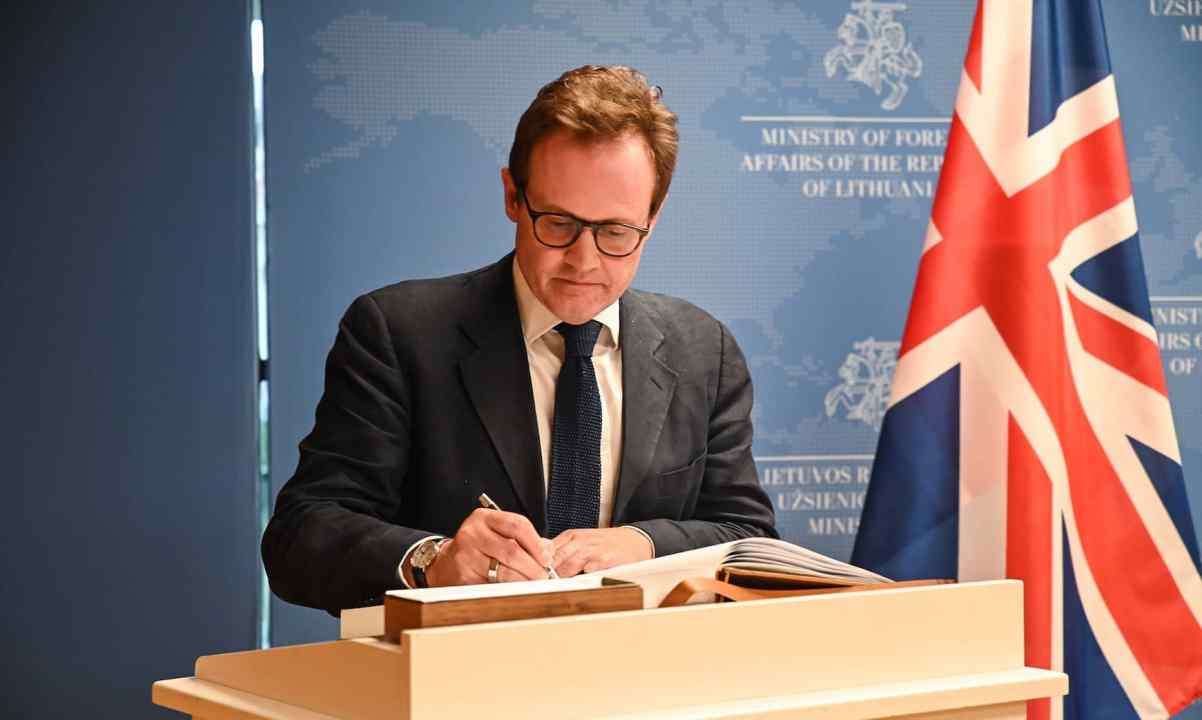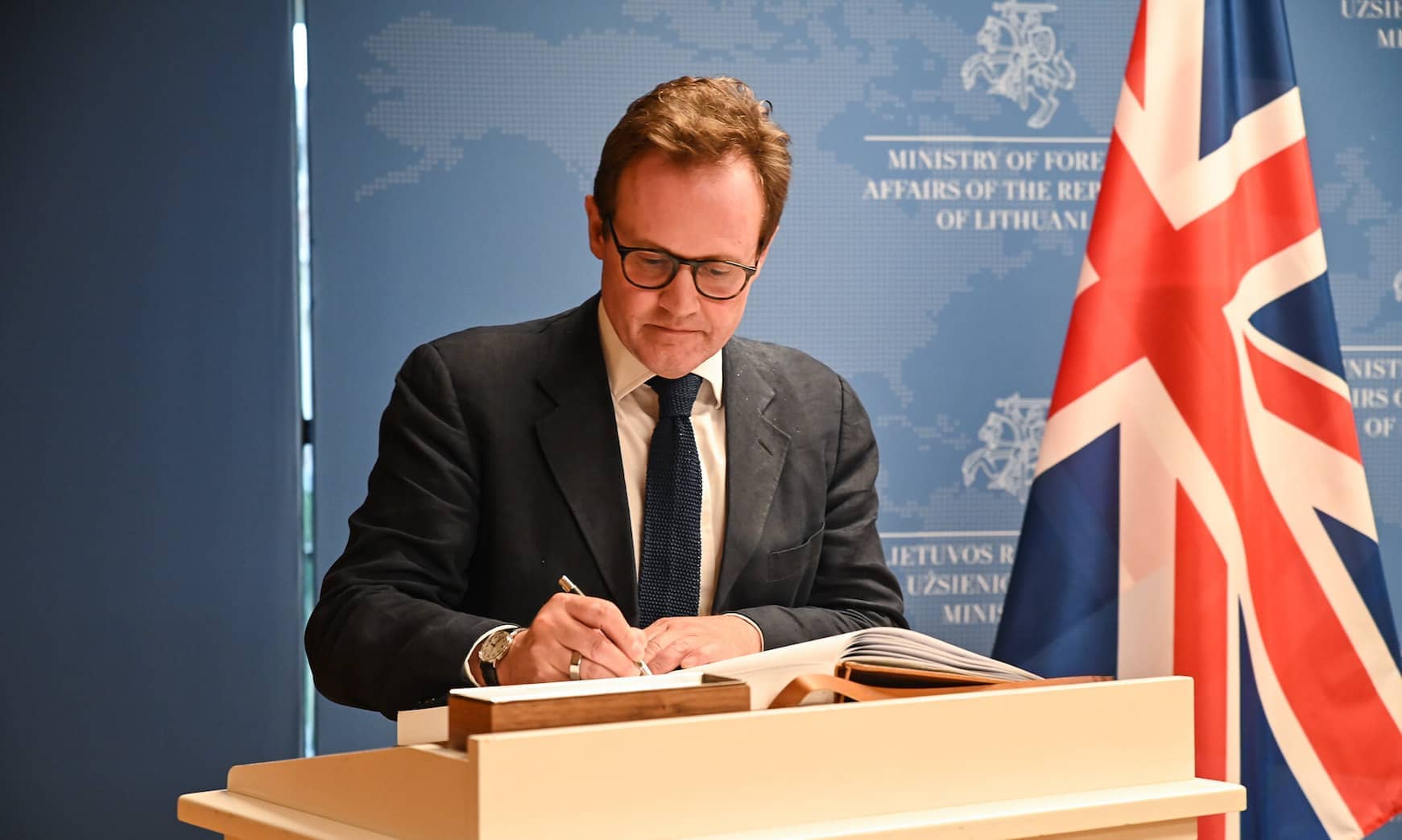When the editor of The Spectator asked me to write about Tom Tugendhat, I initially declined, explaining that doing so would put me in a slightly difficult position. Tom and I have been friends for 20-something years since we met as young journalists via the Scotsman and then Bloomberg’s City of London newsroom. So I can’t claim much objectivity here.
Nor can I position myself as an insider-savant of the Tory leadership race. I’m not a Conservative, though I have spent a lot of my professional life talking to and writing about Conservatives. I first started writing about the Tories when William Hague was leader; the first leadership contest I covered was the one that Iain Duncan Smith won in September 2001.
That contest comes to mind these days when I look at the contenders to replace Boris Johnson. All of them are, naturally enough, focusing their campaigning and messaging on the electorate at hand: Conservative MPs and then, they hope, Conservative party members.
That raises questions. What are Conservative MPs and members looking for in a prospective leader? A glance at the pitches made by most of the candidates to date suggest that they believe their electorate wants some comforting talk about tax cuts, some polite words about Brexit, an optional sprinkling of chatter about ‘woke’, and very little that’s actually challenging. Considerations of who might be best able to win an election are largely absent from the debate thus far.
This is strange, especially for a party whose national poll number is now in the twenties.
When Tom Tugendhat talks about wanting to serve, he means it
The Conservatives just got rid of Boris Johnson because they judged that he was running the government so badly that the party would lose seats and possibly power. Logically, it should follow that they should choose as their next leader someone who can significantly change the things that caused them to ditch Johnson.
Yet almost all of the candidates until just a few days ago served in the Johnson government and took turns going on TV and dutifully insisting that he was a great PM and everything was hunky-dory. Conservatives considering picking one of Johnson’s team to succeed him presumably believe that voters have very short memories. That’s if they’re thinking of the voters at all, of course. Perhaps they’d rather just choose a leader who makes them feel good about themselves by singing the familiar old tunes in a different voice – just as they did back in 2001 with IDS.
And this brings us back to my friend Tom. I keep seeing it written that the biggest obstacle he faces is his lack of ministerial experience. And I keep thinking that this claim makes some pretty big and incorrect assumptions. The first is about voters and their intelligence. If the ministerial experience you’re touting in this contest was in the government of a man you’ve just denounced as unworthy of the office of prime minister, I suspect they might have some doubts.
The second assumption is about the value of any ministerial experience, which probably isn’t as high as Westminster currently seems to think. You can’t train to be prime minister. It’s not a job like any other. Running a Whitehall department, even a big one, doesn’t really compare. It certainly doesn’t ensure you’ll be any good if you get to No. 10. Theresa May had held one of the great offices of state and run a tight ship at the Home Office for six years; that didn’t prevent her from failing as PM. Gordon Brown had peerless experience, having dominated the Treasury and most domestic policy for a decade. It didn’t make him a good premier.
And let’s not even talk about what running London did for Boris Johnson. You can’t, or shouldn’t, pick a prime minister based on their CV. What matters is character. Character is formed in the stormy billows of the world. Character is what you do when no one is looking. It’s what Tom Tugendhat has in spades.
I’ve spent a long time working with politicians, so I know their common vanities and appetites: pretty much all of them are trying to fill some inner void of some sort. I also spent some time writing about defence, so I know some soldiers, including a few of the special, secret sort. Surprisingly, they have things in common with the politicians. Some of them are thrill-seekers, hooked on danger. Some like the glory and the status that comes with being special. Most are driven by some inner voice telling them they can and must do even better next time. And some just want to serve.
I’d put Tom Tugendhat in that last group. He didn’t have to spend all those years in Iraq then Afghanistan, and he certainly didn’t have to do the sort of work he did there. He could have had a much safer, more comfortable life in the media, the City or business. I made this point to him, usually after too much wine, several times over the years. Why? Why do stuff that could mean getting shot in the face and worse? And yes, there are worse things than that, but his best – funniest and grimmest – war stories aren’t in print, and never will be. I asked similar questions when he started talking about politics: why put yourself and your family through all that? Being an MP really isn’t much fun and it doesn’t make you rich. If you’re capable of leading a happy, healthy life without getting elected – and he’s one of few politicians who I believe have that facility – why not do so instead?
The answer, reached repeatedly over many years, often in the small hours after just one more bottle, is that when Tom Tugendhat talks about wanting to serve, he means it. I can’t say I really understand this, or can even explain it. The willingness to subordinate yourself to a higher cause just isn’t in me – too selfish, too caught up in my own cleverness. Columnists are, of course, the most arrogant people around: listen to me, me me. That’s why journalists sometimes go into politics, and why they shouldn’t.
Tugendhat might have started out in journalism, but he’d never have made it. He lacks cynicism. He believes stuff. He believes that things, and people, can and should be better.
I think the closest we ever came to falling out was during a conversation about MPs’ expenses. I was on the Daily Telegraph when the paper revealed the scandal in 2009 and have always had a quiet sympathy for the rank-and-file MPs who accepted the prevailing norms of the time and maxed out their expenses; several were friends and contacts. And, well, my own expenses claims weren’t always spotless either.
My friend had no such sympathy. His public service meant not much money but a fair bit of blood and trauma. MPs had also signed up to serve – and serve others, not themselves. He’s generally a cheery sort, with very English habits of hiding emotion under jokes and avoiding earnestness (this article will make him feel awkward, which is funny in a different way). But the idea of people who’d accepted high public office using it to indulge themselves made him genuinely and fiercely angry.
So when he ended up in parliament and started getting written up as ‘one to watch’, I didn’t even bother asking him if he wanted to play the game and advance his career with a job in Boris Johnson’s government. I knew the answer because when he talks about service and values and all that non-cynical stuff, he means it. He lives it.
He’s my friend so you can ignore this if you wish. But I’d trust Tom Tugendhat with my life and my country. And I suspect that the more that country sees of him, the more people will feel the same.








Comments